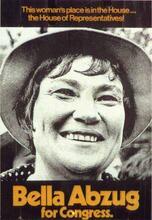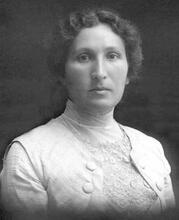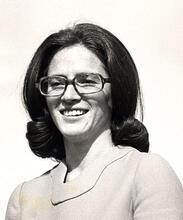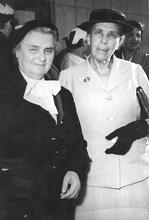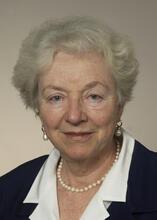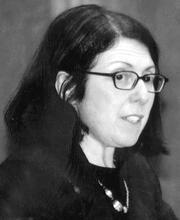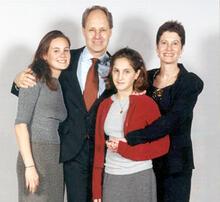Jane Harman
The child of a refugee from Nazi Germany, Jane Harman began her career in private law practice and soon shifted her focus towards politics. She served on the Democratic National Committee before running for California’s 36th Congressional District in 1992. She held her seat until her resignation from Congress and reentrance into the private sector in 2011. During her time as a Representative, Harman was a vocal advocate of Israel, pro-choice legislation, and women’s issues. After 9/11, she concentrated on the topic of homeland security, serving as the Ranking Democrat on the House Intelligence Subcommittee on Terrorism and Homeland Security. After leaving Congress for the Woodrow Wilson International Center for Scholars, Harman held leadership positions in several prominent political organizations.
Early Life and Pre-Congressional Career
Entering elective politics with the theme “This woman will clean House,” Democratic congresswoman Jane Harman managed to establish an increasingly secure seat for herself as representative of the Los Angeles South Bay’s 36th District. She was born on June 28, 1945, in New York City, the eldest child of Adolph N. and Lucille (Geier) Lakes. Her father, a physician, fled Nazi Germany in 1935. Jane grew up with her brother David in Los Angeles, where they attended public schools.
A Phi Beta Kappa graduate of Smith College in 1966, Harman graduated from Harvard Law School in 1969 and became a member of the bar in the District of Columbia. She has two children, Brian Frank and Hilary Frank, from her nine-year first marriage to Richard Frank. She also has two younger children, Daniel Geier Harman and Justine Leigh Harman, with her husband Sidney Harman (1918-2011), an audio equipment manufacturer, whom she married in 1980. She has four grandchildren.
During the 1970s, Harman worked in a variety of public service roles in Washington, D.C., including chief legislative assistant to California senator John Tunney, chief counsel and staff director on two congressional subcommittees, and deputy secretary to the cabinet during the administration of President Jimmy Carter. Through the 1980s, she held significant positions with the Democratic National Committee (DNC), acting as counsel for the 1984 platform committee and chairing the DNC’s National Lawyer’s Council (1986–1992) while she practiced law with several Washington firms.
Congressional Career
Harman first ran for elective office in 1992, winning the seat in the 36th Congressional District, whose composition became substantially more conservative following redistricting after the 1990 census. Only forty-one percent of registered voters in the new district were Democrats at the start of her campaign. Harman’s win was unique and costly (at $2.3 million, the third highest of any House candidate that year). That and subsequent political victories were made possible in part by her family’s wealth.
In 1994, Harman was returned to office by such a narrow edge that her opponent, Susan Brooks, ahead by ninety-three votes before absentees were tallied, flew to Washington to join in the celebration for the “Republican Revolution” and undergo orientation for new representatives. Brooks did not concede until the following July, when the House Oversight Committee conducted local hearings on alleged voter fraud. In a 1996 rematch, Harman began the campaign as a “most endangered member” but won by a nine percent margin of victory.
As a congressional freshman, Harman was appointed to the coveted House National Security Committee through the intervention of Les Aspin, a friend who had chaired the panel and had just become secretary of defense. She was also appointed to the Science, Space and Technology Committee and the Intelligence Committee. She used these positions effectively to influence political decisions that support the economic well-being of the large defense and aerospace corporations that heavily populate her district. Her advocacy for these industries, including funding of the stealth bomber, made Harman one of the major recipients of Political Action Committee donations in Congress.
From these committee posts, Harman also worked for cooperative United States–Israel defense projects and intelligence exchange. She was one of only two Jewish women in the House of Representatives, and she was a member of the Congressional Caucus on Anti-Semitism. Harman consistently supported pro-Israel policies, including foreign aid, and was one of the few House members opposing school prayer.
Representative Harman’s conquest of the 36th District was accomplished with the support of feminists, including Emily’s List, which raises money for progressive feminist candidates. Her first opponent, Joan Milke Flores, espoused a strong antiabortion stance, and Harman made abortion rights the central issue of her campaign: “Pro-choice and pro-change” was the slogan. Harman led efforts to enact pro-female and pro-child policies, cosponsoring legislation that would write abortion rights into federal law, securing rights of women in the military, and increasing financing of public education. She was on the executive committee of the Congressional Caucus on Women’s Issues.
Harman was also a courageous advocate for gay people, casting the only audible no vote on the Military Personnel Subcommittee during a voice vote that called for immediate discharge of HIV-positive personnel and an outright ban on gay soldiers. Harman ran for governor of California in 1998 but was defeated in the Democratic primary by Gray Davis. She was then re-elected to the House of Representatives in 2000.
Harman became the Ranking Democrat on the House Intelligence Subcommittee on Terrorism and Homeland Security, which was charged with spearheading all House actions in response to the September 11, 2001, terrorist attacks on the United States. On October 4, 2001, Harman co-sponsored “The Office of Homeland Security Act,” which gave Cabinet status and budgetary authority to the Office of Homeland Security, created by President Bush immediately following the attacks. Jane Harman continued to show her mettle as a political contender, treading a narrow path between electoral survival and progressive social views, until the end of her time in Congress.
Post-Congressional Career
Harman resigned from Congress on February 28, 2011, to become the first female director, president, and CEO of the Woodrow Wilson International Center for Scholars. At the Center, she is now a Distinguished Fellow and President Emerita. Between 2011 and 2013, she was also a member of the CIA External Advisory Board. As of 2022, she served on the Executive Committee of the Trilateral Commission and was a Trustee of the Aspen Institute, among many other leadership positions at prominent organizations.In 2021, she published Insanity Defense: Why Our Failure to Confront Hard National Security Problems Makes Us Less Safe.
Allen, Mike, and Richard E. Cohen. “Harman to resign from House.” Politico, February 7, 2011.
Alicea, Ines Pinto. “Flores Has Inside Track in Coastal Thirty-Sixth District.” Congressional Quarterly 50, no. 40 (October 10, 1992): 3200.
Barone, Michael, and Grant Ujifusa, with Richard E. Cohen. “Thirty-Sixth District.” In The Almanac of American Politics, 1996 (1995).
Bornemeier, James, and Tom Jennings. “Losing Candidate in Thirty-Sixth District Congress Race Drops Challenge.” Los Angeles Times, July 7, 1995, B3.
Boyarsky, Bill. “Voters Have Democrats Where They Want Them.” Los Angeles Times, November 7, 1996, B1+.
Cassata, Donna. “Social Issues Front-and-Center.” Congressional Quarterly 53, no. 21 (May 27, 1995): 1522.
Donovan, Beth, and Thomas H. Moore. “House Incumbents Raise Money at Record Rate for 1994.” Congressional Quarterly 52, no. 7 (February 19, 1994): 417.
Donovan, Beth, with Ilyse J. Veron. “Freshmen Got to Washington with Help of PAC Funds.” Congressional Quarterly 51, no. 13 (March 27, 1993): 723.
Duncan, Philip D., and Christine C. Lawrence. “Jane Harman (D).” In Congressional Quarterly’s Politics in America 1996: The 104th Congress (1995).
Geffen, Daniel. Personal communication with author. Washington, D.C., January 1997.
“Jane Harman, Democrat: California; 36th District.” Congressional Quarterly 51, no. 3, supplement (January 16, 1993): 54.
Oliphant, Thomas. “A Battle of Ideology in California.” Boston Globe, October 22, 1996, A23.
Pike, John. “The Force Is with Her.” Mother Jones (September/October 1996): 58–59.
Ponessa, Jeanne. “House Addresses Challenges to ’94 Votes, Settles One.” Congressional Quarterly 53, no. 19 (May 13, 1995): 1291.
Towell, Pat. “Military HIV Policy Debate Rekindled in House.” Congressional Quarterly 54 (April 27, 1996): 1180–1181.
“Terrorism and Homeland Security.” The “Virtual Office” of Congresswoman Jane Harman, 2004.
Who’s Who in America, 1996 (1995): 1759.
Who’s Who of American Women, 1995–96 (1995): 449.


